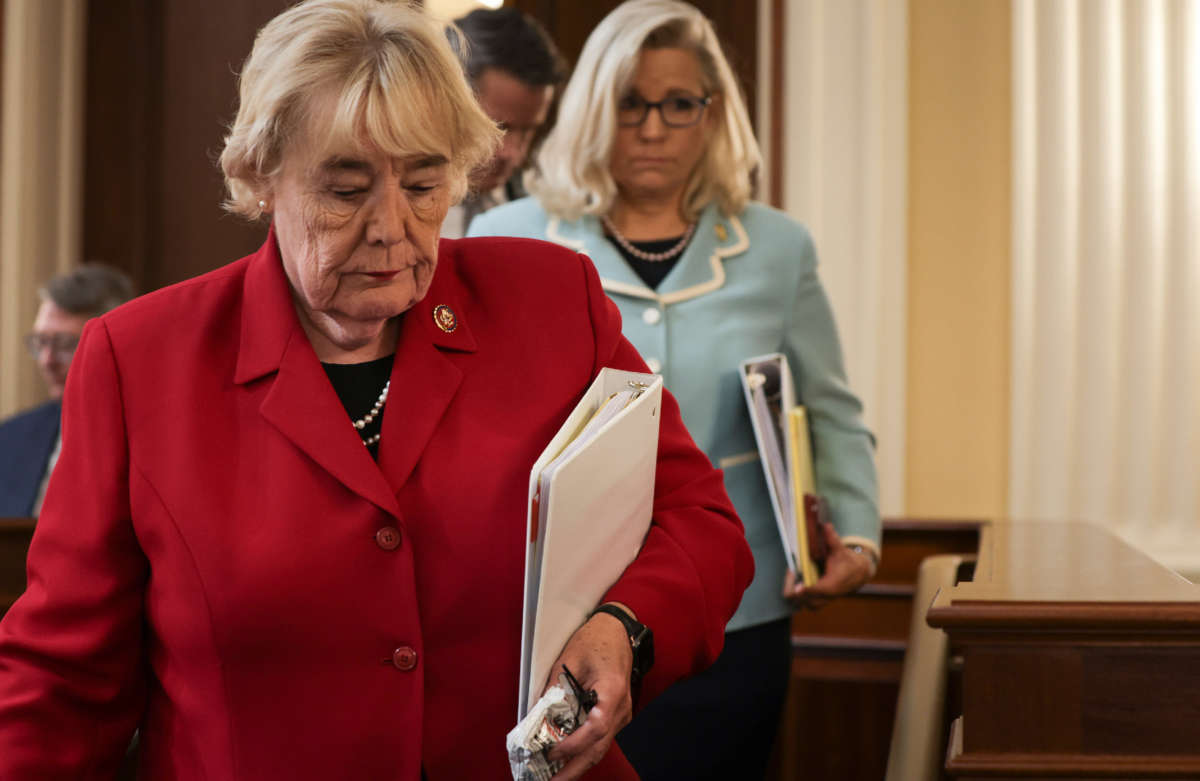Two members of the House select committee investigating the January 6, 2021, attack on the U.S. Capitol submitted a bill that would reform the count of Electoral College votes.
The Presidential Election Reform Act — sponsored by Rep. Liz Cheney (R-Wyoming) and Rep. Zoe Lofgren (D-California) — would change aspects of the Electoral Count Act, making it more difficult for elected officials to overturn the will of voters.
“Our proposal is intended to preserve the rule of law for all future presidential elections by ensuring that self-interested politicians cannot steal from the people the guarantee that our government derives its power from the consent of the governed,” Cheney and Lofgren wrote in an op-ed that was published in The Wall Street Journal over the weekend.
Their legislation takes a multi-pronged approach to prevent another attempt to overturn the presidential election. It makes clear, for example, that the role of the vice president in counting the electors in the Electoral College is purely “ministerial” — addressing attempts by former President Donald Trump and his allies to get then-Vice President Mike Pence to reject certain states’ electors nearly two years ago.
The bill would also increase the number of lawmakers needed to make a formal objection to a state’s slate of electors. Currently, only one member from each chamber of Congress is needed to make an objection, obligating both chambers to have a formal discussion and vote on whether those votes should be rejected. Under Cheney’s and Lofgren’s plan, the threshold to object and force such a vote would increase, to one-third of the members in each of the two houses.
Additionally, the bill seeks to prevent fake electors from being counted as equal to real ones in the Electoral College certification process — the same scheme which Trump and his allies sought to use after he lost in 2020 to President Joe Biden. The Presidential Election Reform Act would prohibit those actions outright, requiring “a single, accurate certificate from each state” to be submitted and making it explicitly illegal to try and submit fake ones.
The legislation could pass in the Democratic-controlled House as soon as this week, as the House Rules Committee is considering the legislation on Tuesday. If members of the committee vote to forward it on, it could receive a full House vote as soon as Wednesday.
The bill will likely receive some bipartisan support in the Senate. It’s unclear, however, whether 10 Republican senators would join with Democrats to break a probable filibuster in that chamber.
Trump is silencing political dissent. We appeal for your support.
Progressive nonprofits are the latest target caught in Trump’s crosshairs. With the aim of eliminating political opposition, Trump and his sycophants are working to curb government funding, constrain private foundations, and even cut tax-exempt status from organizations he dislikes.
We’re concerned, because Truthout is not immune to such bad-faith attacks.
We can only resist Trump’s attacks by cultivating a strong base of support. The right-wing mediasphere is funded comfortably by billionaire owners and venture capitalist philanthropists. At Truthout, we have you.
Truthout has launched a fundraiser, and we have only 72 hours left to raise $25,000. Please take a meaningful action in the fight against authoritarianism: make a one-time or monthly donation to Truthout. If you have the means, please dig deep.
